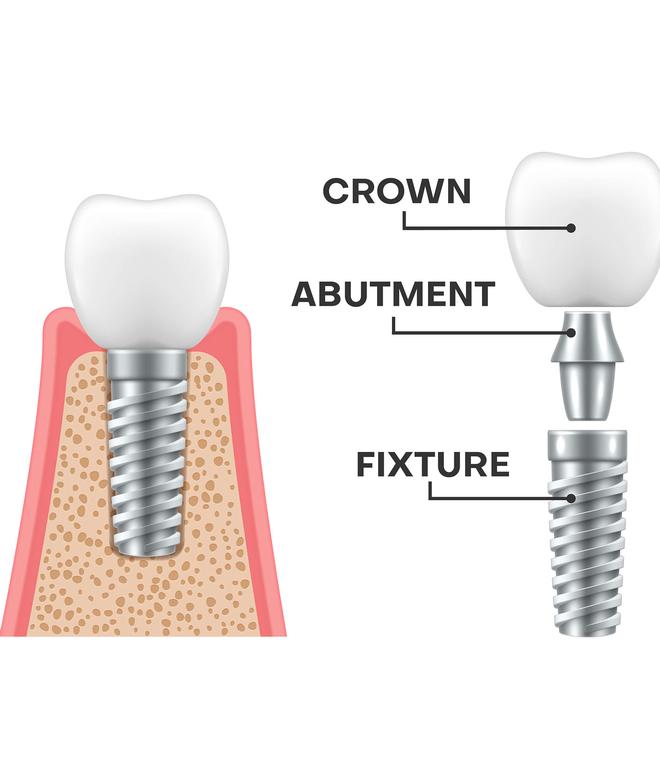A Solid Foundation for Your Replacement Teeth
Dental implants are artificial roots, usually made of titanium, a biocompatible metal, which are inserted into the jawbone. They serve as a robust base for replacement teeth, whether fixed or removable, and help preserve existing bone.
An Effective Solution for Replacing a Single Tooth
In the case of the loss of a single tooth, an implant crown is an increasingly popular and effective restoration option. This method involves the placement of a single implant and its restoration with a dental crown. The crown, usually made of highly durable ceramic, can be perfectly matched to adjacent teeth.
Implant crowns offer a tooth replacement solution that can last for decades, if not a lifetime. They replace the tooth in its entirety, from the crown to the root, providing a realistic appearance that helps prevent bone degradation and facial structure changes. Moreover, implant crowns allow for easy eating and speaking.
The Advantages of Implant Crowns
Implant crowns have numerous advantages over other tooth replacement solutions. Here are some of the main benefits:
Aesthetics
Implant crowns are designed to look and function like your natural teeth.
Comfort
Unlike removable dentures, implant crowns are fixed in place and do not slip in the mouth.
Durability
With proper care, implant crowns can last a lifetime.
Bone Preservation
Dental implants stimulate the jawbone, which helps prevent bone loss.

The Implant Crown Placement Process
The implant crown placement process may vary depending on each patient's individual situation, but it generally involves the following steps:
1. Consultation and Planning
The dentist will assess your oral health and discuss treatment options with you.
2. Implant Placement
The titanium implant is inserted into the jawbone.
3. Osseointegration Period
The implant is left in place for several months to allow the bone to fuse with the implant.
4. Abutment Placement
A small connector, called an abutment, is attached to the implant.
5. Crown Placement
A customized crown is fixed to the abutment.
Maintenance of Implant Crowns
Implant crowns require the same care as your natural teeth, including regular brushing, flossing, and dental check-ups. With proper care, your implant crown can last many years, if not a lifetime.
The Osseointegration Process: A Natural Fusion with Bone
Once dental implants are placed, they begin to fuse with the bone over a few months. This process, called osseointegration, ensures a strong and lasting integration of the implant into the jaw. After this fusion, abutments are inserted into the implants to allow for the permanent attachment of replacement teeth.
The Ideal Solution for You
Implant crowns are an aesthetic, durable, and comfortable tooth replacement solution. If you have lost a tooth and are looking for a replacement solution that looks and functions like a natural tooth, implant crowns might be the ideal solution for you. Don't hesitate to contact us to learn more about this treatment and to schedule a consultation.
 Skip site navigation
Skip site navigation
